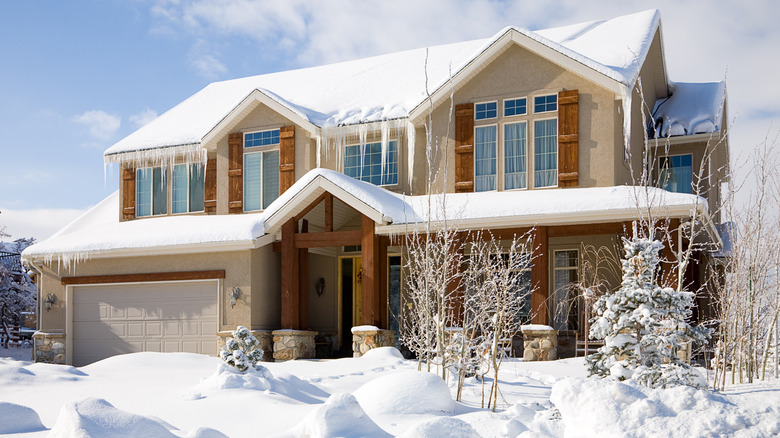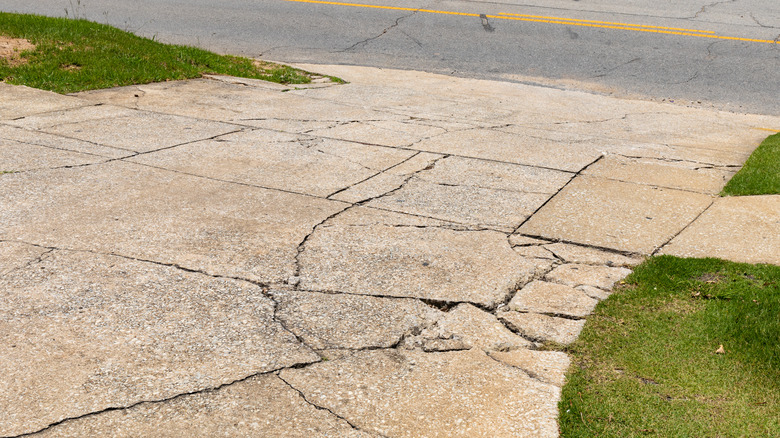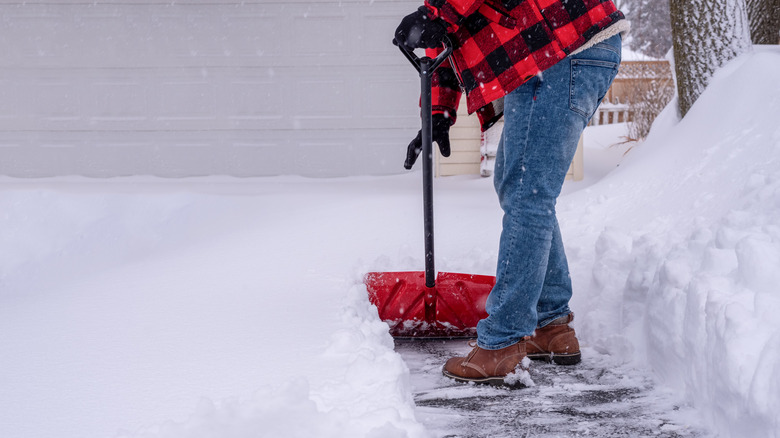What Really Happens When You Don't Shovel Your Driveway After Heavy Snow
Each year when cold weather and snowfall move in, homeowners turn to their trusty shovels and snow blowers to promptly remove the snow from their driveways. If you're a renter or are new to homeownership, you might find yourself wondering what exactly the big deal is and why so much importance seems to be placed on clearing driveways right after a heavy snowfall. The answer is pretty straightforward: to prevent property damage and legal consequences.
The weight and moisture content of snow can pose several structural risks to your driveway when exposure is prolonged. In addition, most cities and counties and even some states have ordinances in place that mandate fines or other consequences for leaving driveways (and sidewalks) uncleared. Leaving your driveway covered in ice and snow can also open you up to legal liability if a visitor or passerby happens to slip, fall, and become injured on your property. If you're in need of motivation to keep your driveway free of snow this winter, keep the potential consequences of uncleared snow in mind.
Uncleared snow and property damage
Whether your driveway is made up of concrete or asphalt, prolonged exposure to heavy snow can wreak havoc on its structural integrity. First, the weight alone of a heavy snowfall can pose a risk to your driveway. On average, snow weighs about 20 pounds per cubic foot. Snow that is very wet or has been compacted by foot or vehicle traffic becomes even heavier. Prolonged exposure to a heavy snow load is enough to cause your driveway to buckle and crack, creating avenues for water to enter its structure.
The common winter cycle of repeated freezing and thawing can also have a negative impact on your driveway if snow hasn't been cleared. During a thaw, the snow left on your driveway will melt, and water will seep into its cracks and crevices. Then, when temperatures return to freezing or colder, that water will freeze and expand inside your concrete or asphalt. As a result, the cracks that are already there can become deeper, and new cracks can appear — eventually leading to more severe issues like crumbling and potholes.
Uncleared snow and legal consequences
Cracks and potholes aren't the only risks associated with leaving snow on your driveway. When you decide not to clear snow off your driveway, you're also deciding to leave yourself open civil infractions and legal liability. As mentioned, some states enforce statewide snow ordinances. Locally, nearly every city that routinely receives snow expects homeowners to keep their sidewalks cleared. If a sidewalk runs across the end of your driveway and you fail to clear it, you'll face the possibility of a civil infraction and a fine.
Beyond your city, county, or state's laws, an uncleared driveway puts you at risk for personal legal liability. If a passerby is injured while attempting to walk across a sidewalk that intersects with your driveway or a visitor slips and falls on your uncleared driveway, you may face a civil lawsuit. Shoveling your snowy driveway can certainly feel like a pain, but the potential consequences of leaving snow uncleared are much more unpleasant.



